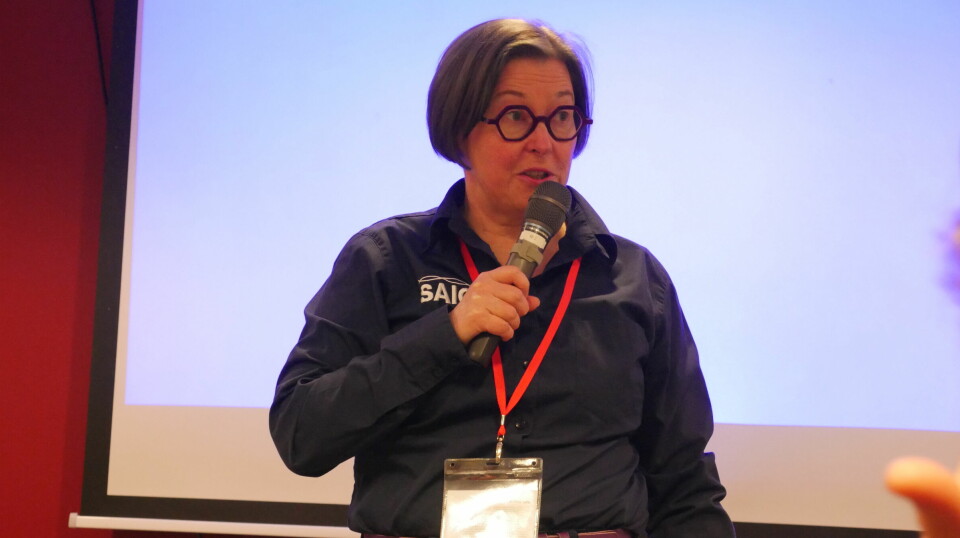
SAIC will continue - but in slimmer form, says innovation centre’s chief
Organisation will focus on fish health R&D, Jones tells seminar
Scotland’s Sustainable Aquaculture Innovation Centre (SAIC) will continue as a slimmed-down organisation with a focus on fish health, its chief executive Heather Jones has said.
Jones took the opportunity to update fish health professionals on the status of SAIC during a seminar organised by aquaculture diagnostics company PatoGen at the Scottish Association for Marine Science (SAMS) at Dunstaffnage, Oban yesterday.
Her reassurance about SAIC’s future follows a decision last year by previous funder the Scottish Funding Council (SFC) to reject SAIC's application for a new grant.
Jones was not scheduled to speak at yesterday’s event but asked organisers if she could take the stage to update seminar attendees.
'SAIC will continue'
“SAIC is still here, and SAIC will continue to be here,” said Jones.
“The first thing that I want to say is that the current team will be doing work here until October of this year. The second thing is that the Scottish government is absolutely committed to seeing SAIC continue as a resource, a bit like (the Norwegian aquaculture industry’s research funder) FHF, to support the Scottish industry to produce high quality, marketable fish.
“The Farmed Fish Health Framework, which exists for a 10-year period and was launched in 2018 – (Mowi Scotland boss) Ben Hadfield was one of the co-authors – says that the most important thing that government wants to do is support and promote innovation in fish health management, secure improved productivity, improved performance, improved survival, and better production, and that is precisely why everyone is this room is here today.
Directed by industry
“We’ve been through a process where we’ve asked industry, we’ve asked all your managing directors and the trade body (Salmon Scotland) ‘what is the most important thing that SAIC can do for you in the next few years?’, and the answer that we got back was to concentrate on doing applied R&D in fish health, and that’s exactly what we are going to be doing.
“There are still, of course, negotiations going on in the background about how much money and when it starts and when it finishes and all that, but the main message is: we’re here and we’re all about fish health R&D.”
When Fish Farming Expert asked the Scottish Government about the SFC’s decision in November last year, it replied that it was working closely with the SFC, SAIC, and other partners on the next steps of the process.
Value and expertise
“This includes alternative delivery and funding arrangements for SAIC, ensuring the value and expertise which SAIC offers to innovation in a key marine sector is retained,” said the Scottish Government.
It appears likely, however, that some expertise will be lost to SAIC as it narrows its focus from what had become a wide-ranging effort to support aquaculture in various ways. These included funding PhD studies for projects beneficial to fish farming, management training, encouraging women into the industry, and helping organise the Scottish Pavilion at the world’s biggest fish farming trade show, Aqua Nor in Trondheim, Norway.
SAIC was also responsible for a successful two-day Scottish aquaculture summit held last May at the Technology and Innovation Centre in Glasgow.























































